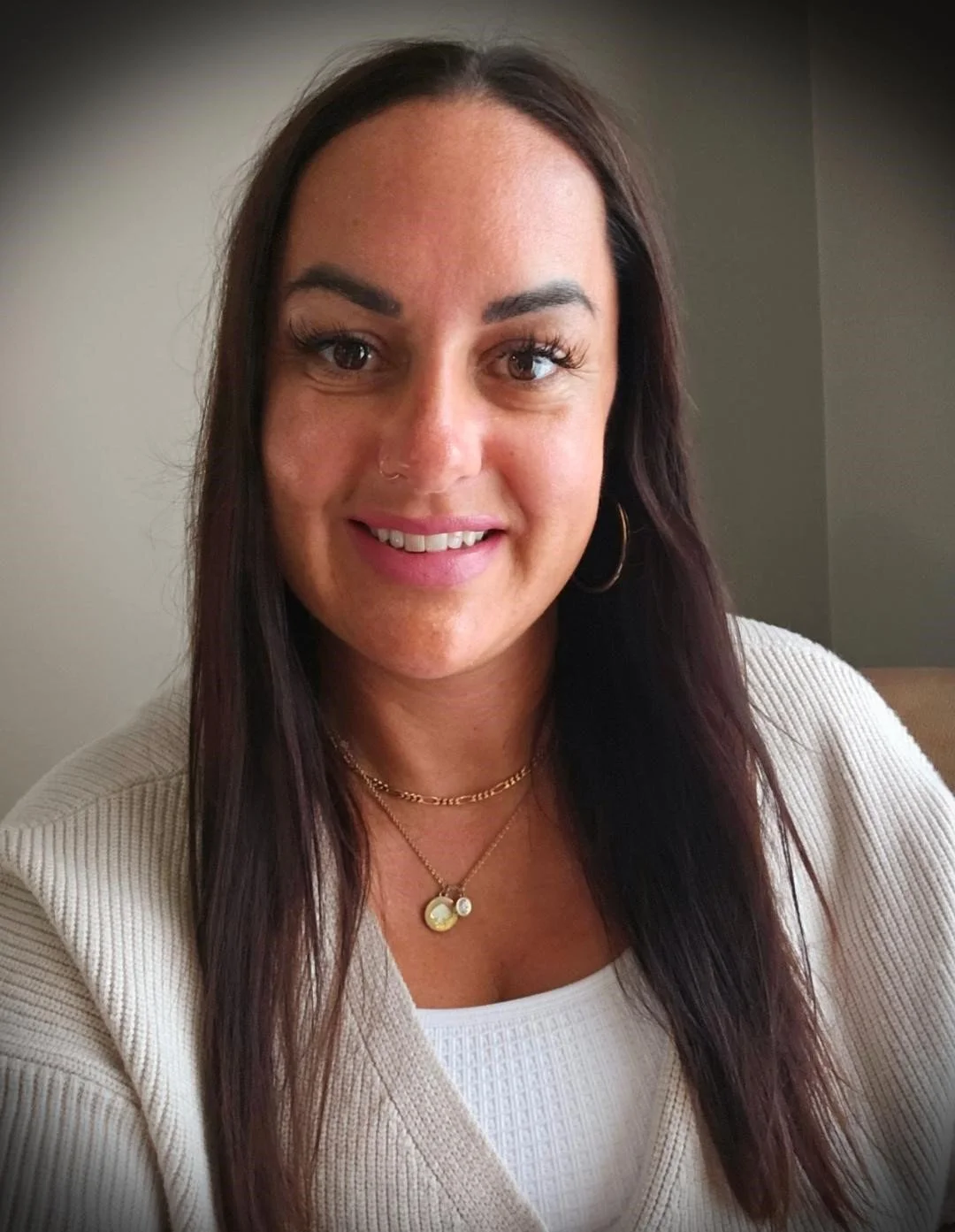
Online Teen Therapists Near Me: Assessment & CBT Therapy
We Empower Teens to Conquer OCD, Anxiety, and Heal from Trauma.
Helping Teens Feel Better with Online Therapy in Ontario
Childhood and teenage years are some of the most important times in our lives, but they can also be really tough.
Sometimes, teens just need someone to talk to who isn't a close family member. That's where we come in! Our therapists are here to help teens manage their mental health better, so they can focus on what's important to them.
We specialize in helping teens overcome OCD, anxiety, and the aftermath of trauma. Our goal is to provide support and tools to navigate these challenges so that they can live happier, healthier lives.
Book a Free Virtual Consultation Today!
Book a free consultation by clicking the link below. We can help you learn if our online clinic is a good fit. We will match you with an online teen therapist in Ontario.
Read our blog post on Understanding CBT for Teens.
Learn about our therapy fees.
Our OnlineTeen Services in Ontario
-
Understanding a teen's mental health needs is crucial for effective treatment. Our psychological assessments provide a comprehensive evaluation. These assessments help identify issues such as:
ADHD
Learning disabilities
Anxiety
Depression
Other mental health concerns.
With this information, we can create personalized treatment plans. We can tailor therapy to each teen's unique needs, ensuring they receive the best possible care.
Learn more about online psychological assessments by Emily MacQuarrie.
-
Cognitive Behavioural Therapy (CBT) is an effective approach for managing anxiety. Our therapists work with teens to identify and change negative thought patterns and behaviours. Through CBT, teens learn tools to handle stressful situations, reduce anxiety and build confidence. CBT is practical and focuses on helping teens develop healthier ways of thinking and behaving.
Types of Anxiety that we Treat:
Social anxiety
Generalized anxiety
Panic attacks
Health anxiety
Phobias (e.g. swimming, sleepovers, driving, vomit, dogs, etc.)
OCD
Learn more about our anxiety therapy.
-
Experiencing trauma can have a lasting impact on a teen's mental health. Our trauma therapy helps teens process and heal from traumatic events. We use various therapy options including:
Eye Movement Desensitization and Reprocessing (EMDR)
Trauma-focused CBT
Cognitive Processing Therapy (CPT)
Prolonged Exposure (PE)
Learn about our trauma therapy. Not sure which is best? Book a free consultation today.
Experiencing trauma can have a lasting impact on a teen's mental health. Our trauma therapy helps teens process and heal from traumatic events. We use various therapy options including:
Eye Movement Desensitization and Reprocessing (EMDR)
Trauma-focused CBT
Cognitive Processing Therapy (CPT)
Prolonged Exposure (PE)
Our therapists create a safe and supportive environment for teens. They can explore their feelings, build resilience, and move forward from their trauma.
-
ERP stands for Exposure and Response Prevention (ERP). It is a type of therapy designed for treating Obsessive-Compulsive Disorder (OCD).
Our therapists help teens face their fears and obsessions in a safe and controlled way. ERP helps reduce the anxiety and distress associated with OCD, leading to a more balanced and fulfilling life.
Learn more about ERP for OCD.
-
Managing ADHD can be challenging, but our specialized therapy can make a big difference. We help teens with ADHD develop organizational skills, improve focus, and manage impulsivity. Our therapists use evidence-based strategies to support teens in school, at home, and in social situations. By addressing the specific needs of each teen, we help them achieve their full potential.
Learn more about ADHD therapy in Ontario.
-
DBT stands for Dialectical Behaviour Therapy (DBT). It is a comprehensive therapy that combines cognitive-behavioural techniques with mindfulness practices. It's helpful for teens dealing with intense emotions, self-harm, or relationship difficulties. Our DBT-informed sessions teach teens how to:
Regulate their emotions
Improve interpersonal skills, and
Build resilience.
Learn more about DBT-Informed therapy
Child Services
Meet our Teen Therapists
-

Melissa Lindstrom, RSW
Registered Social Worker
-

Alpar Szotyori, RP
Registered Psychotherapist
-

Alana Weinberg, RSW, MSW
Registered Social Worker
-

Crystal Pacheco, RSW, MSW
Registered Social Worker
Mental Illness Impacts Millions of Youth
“Healthy emotional and social development in our early years lay the foundation for mental health and resilience throughout the lifespan.
Yet, 70 percent of persons living with a mental illness see their symptoms begin before age 18.
Mental illness affects some 1.2 million of our children and youth. By age 25, that number rises to 7.5 million (about one in five Canadians).”
7 Tips for Teens Struggling with Mental Health
If you’re a young person struggling with mental health, it can feel overwhelming. Here are seven tips to help you navigate through tough times:
Talk to Someone You Trust: Find someone you can open up to, like a friend, family member, or teacher. Talking about your feelings can make a big difference.
Stay Active: Exercise can help improve your mood and reduce stress. Even a short walk or some time spent playing a sport can help.
Get Enough Sleep: Sleep is crucial for your mental health. Keep a regular sleep schedule and get 8-10 hours each night.
Limit Screen Time: Too much time on social media or gaming can affect your mood. Try to balance screen time with other activities.
Eat Well: A balanced diet can boost your energy and mood. Eat plenty of fruits, vegetables, and whole grains.
Practice Mindfulness: Techniques like deep breathing, meditation, or yoga can help you stay calm and focused. They’re great tools for managing stress.
Seek Professional Help: If you’re feeling overwhelmed, talking to a counsellor or therapist can be helpful. They can provide support and teach you ways to cope with your feelings.
Remember, it’s okay to ask for help. You’re not alone, and there are resources available to support you.
Key Information about our Online Teen Therapy
Availability and Scheduling
Finding a time that works for you and your teen is important. Many online teen therapists in Ontario offer flexible scheduling options. At Virtual CBT, we pride ourselves on providing free consultations within a few days. Often, you can find an appointment with us on the same day. We have an easy-to-use booking system where you can choose a time that works for your schedule.
Qualifications and Experience
When looking for a therapist, it's important to know their qualifications. At Virtual CBT, we have a variety of qualified and registered therapists to choose from. Our Clinical Directors will match you with a therapist based on different factors.
Cost and Insurance Coverage
The cost of online therapy can vary. Some therapists charge by the session, while others offer package deals for a set number of sessions. Because each person has unique goals and mental health symptoms, our clinic bills per 50-minute session. Learn more about our fees. Many benefit providers will cover therapy sessions for your teen. You can check their website or call them to see if they cover psychological services.
Confidentiality and Privacy
Privacy is a top concern when it comes to online therapy. Our therapists use secure platforms to ensure your teen's information is confidential. Sessions are private and therapists follow strict guidelines to protect your teen's privacy. Don't hesitate to ask us questions during your free consultation or assessment session.
Helping Teens Across Ontario with Online Counselling
Frequently Asked Questions (FAQ) About Youth or Teen Therapy
-
Therapy for youth is a safe space where young people can talk about their feelings and problems with a trained professional.
The therapist helps them understand their emotions and find ways to cope with challenges. It’s like having a guide to help navigate tough times.
-
Therapy can help your child by providing support and teaching them healthy ways to deal with their emotions.
It can improve their mood, reduce anxiety, and help them develop better coping skills. Therapy can also address specific issues like bullying, school stress, or family problems.
-
In the first session, the therapist will get to know your child and understand their concerns. They might ask questions about their feelings, school, and home life. It’s a chance for your child to share what’s on their mind and for the therapist to build a connection with them.
-
If your child is struggling with their emotions, having trouble at school, or showing changes in behavior, therapy might help.
Signs can include sadness, anxiety, anger, or withdrawing from friends and activities. If you’re worried about your child, it’s a good idea to consult a therapist.
-
You can support your child by being understanding and encouraging. Show them that it’s okay to talk about their feelings and that seeking help is a positive step. Stay involved by asking how therapy is going and being there to listen if they want to share. Your support can make a big difference in their progress.
-
The government of Ontario lists many free mental health resources for youth and children.
Check your company's benefits to see if your child or youth can access private therapy. Many benefit providers cover psychological services.









